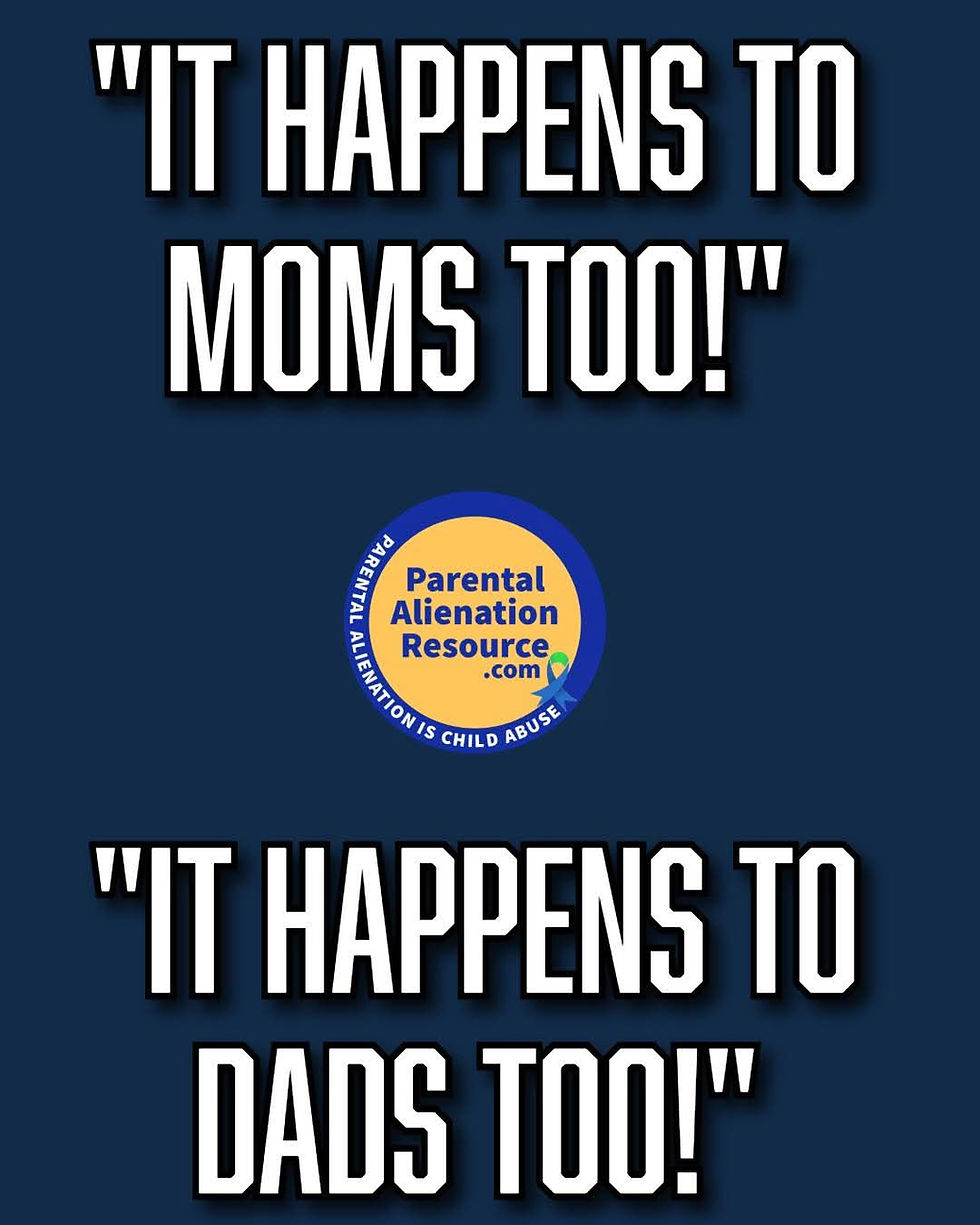Narcissistic Abuse Doesn't End When You Leave: The Battle for Your Children
- Parental Alienation Resource

- Aug 13, 2023
- 2 min read

Leaving a relationship with a narcissist is often a difficult and courageous step towards reclaiming your life and well-being. However, for those who share children with a narcissistic ex-partner, the nightmare doesn't always end there. It is not uncommon for narcissists to use manipulation tactics, such as parental alienation, to turn your own children against you.
This article sheds light on the devastating effects of narcissistic abuse on children and offers guidance on how to navigate this challenging situation.
Narcissistic parental alienation occurs when a narcissistic parent deliberately undermines, manipulates, and controls the children's perception of the other parent. By poisoning their minds with lies, half-truths, and exaggerations, the narcissist aims to erode the parent-child bond, isolate the child from the other parent, and gain unwarranted power and control.
Narcissists are skilled in exploiting vulnerabilities and manipulating emotions. They may employ tactics such as gaslighting, guilt-tripping, and emotional blackmail to coerce the children into aligning with them and rejecting the other parent.
Narcissists may engage in a smear campaign against the targeted parent, portraying them as irresponsible, neglectful, or abusive. These false accusations can be deeply damaging to the parent-child relationship and can leave the targeted parent feeling helpless and unfairly judged.
Narcissists may use fear and intimidation to keep the children under their control. They might threaten consequences, including withdrawal of affection, punishment, or even physical harm if the child dares to show loyalty or maintain a relationship with the targeted parent.
Narcissistic parents may isolate the children from extended family, friends, or supportive networks to exert greater control over their perception. By limiting exposure to alternative perspectives, they create an echo chamber that reinforces their narrative and isolates the child from the truth.
Navigating the Battle for Your Children:
Keep thorough records of interactions with your ex-partner, including emails, text messages, and any instances of parental alienation. Documenting incidents of alienation will be invaluable when presenting evidence to legal professionals or family court.
Engage the help of therapists, counselors, or mediators who specialize in parental alienation. They can provide guidance, support, and strategies to help you navigate this complex situation while prioritizing the well-being of your children.
Focus on building a healthy relationship with your children. Be a consistent, loving, and responsible parent who creates a safe space for open communication, free from judgment or manipulation.
Set clear boundaries with your ex-partner. Limit interactions to necessary communication regarding the children and avoid engaging in confrontations or arguments.
If the situation escalates or you feel your children are at risk, consult with a family law attorney to explore your legal options. In some cases, court intervention may be necessary to protect your rights as a parent and ensure the best interests of the children are considered.
Narcissistic abuse doesn't end when you leave a toxic relationship, especially when children are involved. Protecting your children from parental alienation requires resilience, patience, and a commitment to their well-being. By understanding the tactics employed by narcissists and seeking professional support, you can navigate this challenging journey and work towards rebuilding strong, healthy relationships with your children. Remember, your love, consistency, and unwavering support can help counteract the damage inflicted by narcissistic abuse, and ultimately, guide your children towards a brighter future.









Comments